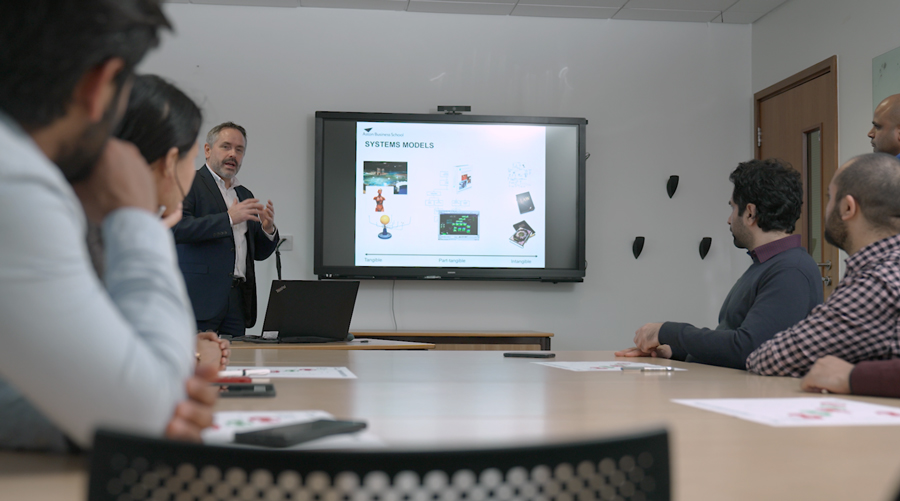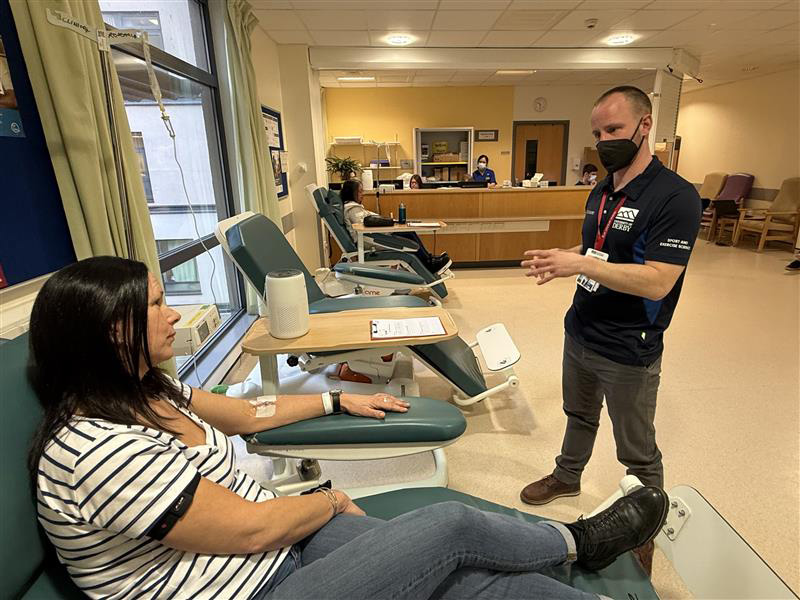What is social value and why is it important?

Dr Paul Tully, Associate Director of Policy and Research at the Education and Training Foundation, examines the meaning of social value in Further Education and Skills, why it is so important and how we can ensure social value is centred in articulating the sector’s mission and impact.
In the language of public service, social value is a familiar term, summarising in one phrase a host of social, psychological and community benefits that a service like education offers people who engage with it. Further Education (FE) and Skills as a sector demonstrates ‘social value’ in what it achieves for its learners and for wider society. But what does a ‘social value’ approach mean in practice for the FE and Skills sector?
Defining social value in FE and Skills
A social value approach marks a departure from assessing the impact of education in terms of economic outcomes, such as measuring increases in productivity or calculating improvements in population wealth. It takes a more holistic approach to measuring educational impact, with researchers identifying the following as typical of the benefits achieved by a high-quality FE and Skills sector:
- learning that positively influences people’s lives and well-being
- progress into meaningful work or further learning
- improving social mobility
- engaging people who have been traditionally excluded from education
- reducing economic and social inequalities between groups
- helping learners to develop a social, civic and/or environmental conscience
- increasing workforce diversity and earning potential
- developing community cohesion
This list of benefits resonates with the motivations of FE and Skills practitioners who teach to ‘give something back’, who take pride in their learners’ achievements, and who desire to transform learners’ life opportunities. The list is not exhaustive and is, in part, derived from earlier work on the social value contribution of the Taking Teaching Further programme, funded by Department for Education (DfE) and delivered until 2023 by the Education and Training Foundation.
The sector’s ‘North Star’
In ETF’s recent Further Education and Skills: Changing systems of change report – which drew initial evidence largely from FE colleges with a view to broadening research and applications across the breadth of the FE and Skills sector – practitioners and stakeholders debated whether sufficient attention was being given to the social and cultural outcomes created by a vibrant FE and Skills system. This debate drove a need to clarify what the ‘North Star’ mission is for the sector. The report concluded that “participants from the FE college sector [predominantly] articulated its purpose in socio-economic terms, such as serving the community, addressing regional skill shortages, combating poverty, and facilitating transformative life experiences leading to employment”.
The quest to define and understand how social value is delivered across the FE and Skills system is therefore important and worthwhile. Undoubtedly, ministers and policymakers want reassurance that public money is being used to rebuild lives, aspirations, opportunities and communities. Showcasing the sector’s ability to deliver social value will, therefore, help by enhancing the reputation of FE and Skills institutions across the policy community and in broader society.
How FE and Skills delivers social value
Past and more recent efforts to calibrate the social value impact of FE and Skills have been varied and illuminating. An early examination came in 2011 from the former National Institute for Adult & Community Education (NIACE), which evaluated the effects of adult learning on learners, family members, local residents and service providers.
For learners, the impact of learning reduced social isolation, strengthened learners’ self-efficacy and improved their wellbeing. For wider family members, it facilitated greater involvement with other parts of the community. For local residents, improvements in skills led to new work opportunities and reduced cultural tensions. For service providers, new and more effective approaches to service delivery were engineered, with services increasingly re-shaped towards the needs of disadvantaged and under-represented groups. The briefing paper stated:
“The evidence gathered…illustrates we are talking about much more than just delivering courses: adult learning provides wider outcomes that are fundamental building blocks to working with communities and enabling them to access other services and build autonomy, resilience and self-reliance – a starting place for further learning, gaining new skills, routes out of poverty and creating a culture of learning in communities”.
The social value of the FE and Skills system came to the foreground again at the height of the Covid-19 pandemic, following its disruptive effect on many post-16 learners, including apprenticeship programmes. The NCFE report Good for Me, Good for FE: Social Value Report 2021-2022 – which reported on the collaborative efforts of staff and learners at 140 UK colleges in 2021-22 – estimated that the social value of FE and Skills that year could have been worth as much as £3.76m from a combination of food bank donations, fundraising initiatives and community volunteering. To highlight two examples:
- Foundation students from East Coast College (16-24-year-olds with special educational needs), were involved in ‘Grow and Mow’ – a project involving planting, growing and harvesting strawberries on the college campus, which were then delivered to local care homes for residents to enjoy.
- South Eastern Regional College (SERC) students organised a college-wide donation drive in Spring 2022 for the Ukraine Crisis Appeal and The British Red Cross Society, with support from the college Student Union.
Initiatives like these epitomise Baroness Sharp’s description of colleges in 2011 as a ‘dynamic nucleus’ for local communities, helping to revitalise employment markets, tackle social disintegration and raise environmental awareness. These stories, and thousands like them, are well-known inside the sector, but they are less familiar outside it.
Driving social value forward – next steps
ETF is undertaking research to support the sector by promoting the life-changing work of educators and leaders at FE and Skills providers. The whole sector is being invited to contribute to a short survey by 31 July 2024, sharing examples, stories, case studies and lived experience of their work, so that the richness, depth and diversity of the benefits that providers deliver for learners, local communities and wider society can be captured.
This rich data will help to develop recommendations for policy makers to integrate concepts and practice relating to social value in the FE and Skills sector, in turn helping to build a sustainable future for our transformative sector, and those who work and learn within it.
Dr Paul Tully, Associate Director of Policy and Research at the Education and Training Foundation











Responses